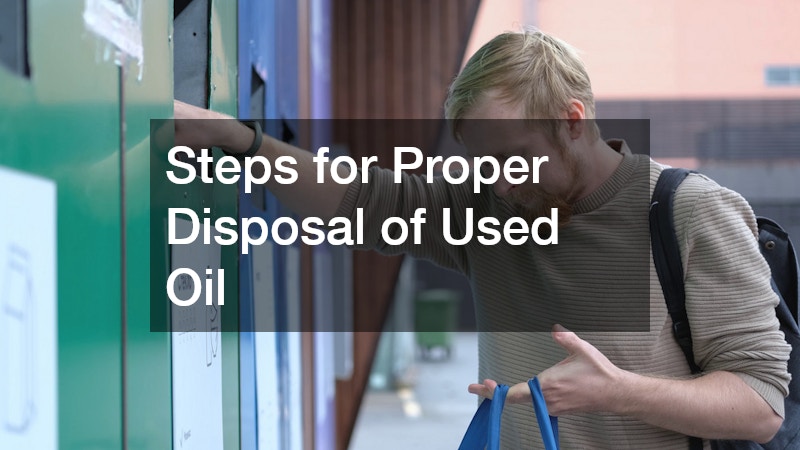Proper used oil disposal is essential for maintaining environmental safety and adhering to legal requirements. Many people are unaware of the negative impacts that improper disposal of used oil can have on the environment and human health. This article will outline the steps you should take to ensure that you handle used oil disposal correctly, emphasizing the importance of environmental protection and regulatory compliance.
What is Used Oil?
Used oil is any petroleum-based or synthetic oil that has been used and, as a result, is contaminated by physical or chemical impurities. These impurities make the oil unsuited for further use without treatment. Improperly disposed of used oil can contaminate our water supplies and soil, posing significant health risks to humans and wildlife.
Understanding what constitutes used oil is crucial for its proper disposal. When oils are used in machines or vehicles, they break down and accumulate impurities, rendering them hazardous. Handling these used oils with the right method prevents potential environmental disasters and preserves public health.
It is not just automotive oils that become a concern; industrial oils, hydraulic fluids, and even some cooking oils fall into this category. Each type of used oil may require different handling or disposal techniques. By recognizing all forms of used oil, consumers can take proactive steps to dispose of them safely.
Environmental Impacts of Improper Disposal
The improper disposal of used oil can have severe environmental consequences. Each year, large quantities of oil are improperly disposed of, polluting waterways and ecosystems. For example, one gallon of used oil can contaminate one million gallons of water, illustrating the significant impact a small amount of improperly disposed oil can have.
This contamination is not just a short-term issue; oil residues can persist in the environment for years. As oil spreads across water bodies, it forms a thin film that inhibits the oxygen exchange essential for aquatic organisms. The ecological imbalance created by oil pollution affects food chains and threatens biodiversity.
Beyond waterways, soil contamination is another critical concern. Used oil seeping into the ground can destroy plant life and decrease soil fertility. It also risks entering groundwater supplies, making its way into drinking water sources, and posing a dire health risk.
Legal Regulations on Used Oil Disposal
Governments worldwide have implemented regulations to control the disposal of used oil, emphasizing the importance of proper handling to avoid penalties. For example, in the United States, the Environmental Protection Agency (EPA) has established guidelines under the Resource Conservation and Recovery Act (RCRA) to ensure safe disposal practices.
These regulations typically require that used oil is taken to designated collection sites or recycling facilities. Facilities are designed to treat and recycle used oils safely, ensuring they do not harm the environment. Noncompliance with these regulations may lead to fines or legal actions, incentivizing proper handling and disposal.
In addition to federal regulations, many regions have their own ordinances that may be even stricter. Businesses and individuals must familiarize themselves with both local and national regulations. Compliance ensures environmental protection and avoids costly penalties.
Steps for Proper Disposal of Used Oil
To ensure proper used oil disposal, begin by collecting the oil in clean, leak-proof containers. These containers should be labeled clearly as “Used Oil” to prevent accidental misuse or improper disposal. Avoid mixing used oil with other substances, as this complicates recycling efforts and may create hazardous waste that is more difficult to manage.
Next, locate a certified oil recycling facility or collection center in your area. Many auto service stations, recycling facilities, and municipalities offer used oil recycling services free of charge. By taking used oil to these centers, you are ensuring it is recycled properly, helping conserve resources and protect the environment.
Lastly, educate others about the importance of proper used oil disposal. Community workshops and informational campaigns can increase public awareness and involvement in environmental protection practices. Encouraging friends and family to responsibly dispose of their used oil contributes to a collective effort towards a healthier planet.




